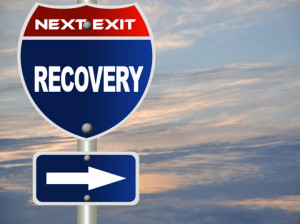Being sober in New Orleans sounds impossible. It’s the city that care forget with bars in the French Quarter that never close, and a city of partygoers that never stop reminding themselves laissez les bon temps rouler. But September is National Recovery Month and a time to celebrate those who have embarked on their journey into sobriety, even in New Orleans. It is a time to reflect on what makes a recovery strong. There are many things you can do on a daily basis to help keep your recovery strong, regardless of where you call home and whether you’ve been in recovery for weeks or years. 
One of the most important things that we like to emphasize during National Recovery Month is stress management. Stress can be a quick saboteur to recovery, regardless of how long you’ve been in recovery or how confident you might be. Even among the laid back vibe of the Big Easy, stress can get the best of you and your recovery. Being sober in New Orleans means it’s always a good idea to take this time to check in with yourself and see how you are managing. And remember, stress isn’t always about major life events, it can also be daily hassles that add up over time! Read more →
 warning signs. Whether your teen or young adult is headed to Lusher, Jesuit, Tulane or Loyola, etc., pay close attention to warning signs your high schooler or college student might be displaying. Those who are most at risk tend to demonstrate the following red flags:
warning signs. Whether your teen or young adult is headed to Lusher, Jesuit, Tulane or Loyola, etc., pay close attention to warning signs your high schooler or college student might be displaying. Those who are most at risk tend to demonstrate the following red flags: Social events, after work happy hours and client dinners, and sporting events are all places where the lines of what is acceptable alcohol consumption are often blurred. Casual drinking can sometimes turn into
Social events, after work happy hours and client dinners, and sporting events are all places where the lines of what is acceptable alcohol consumption are often blurred. Casual drinking can sometimes turn into  What do you do about chronic pain management when prescription drugs fall short? Right now there are about five to eight million people in the U.S. that use prescription drugs to manage chronic pain. And yet there is insufficient evidence to show that long-term use of opioid therapy is effective at improving chronic pain, function or quality of life. In fact a new study published in the
What do you do about chronic pain management when prescription drugs fall short? Right now there are about five to eight million people in the U.S. that use prescription drugs to manage chronic pain. And yet there is insufficient evidence to show that long-term use of opioid therapy is effective at improving chronic pain, function or quality of life. In fact a new study published in the  more common misconceptions. Most of us are familiar with the movie-version of PTSD or Post-Traumatic Stress Disorder: the soldier returning from war who loses it in a psychotic, angry and violent episode. But this isn’t the only version of PTSD.
more common misconceptions. Most of us are familiar with the movie-version of PTSD or Post-Traumatic Stress Disorder: the soldier returning from war who loses it in a psychotic, angry and violent episode. But this isn’t the only version of PTSD. of consuming alcohol while pregnant, many forget that early on, before you even know you are pregnant, your body is still vulnerable to the effects of alcohol.
of consuming alcohol while pregnant, many forget that early on, before you even know you are pregnant, your body is still vulnerable to the effects of alcohol.

